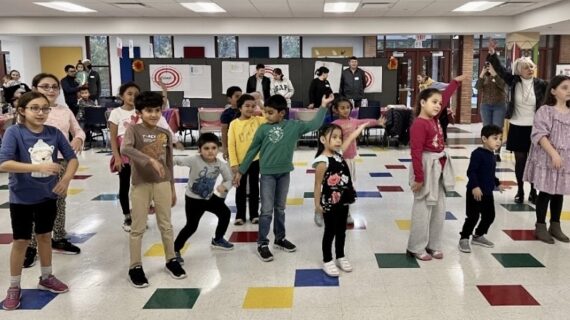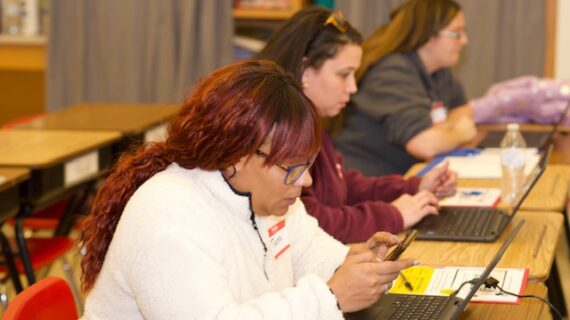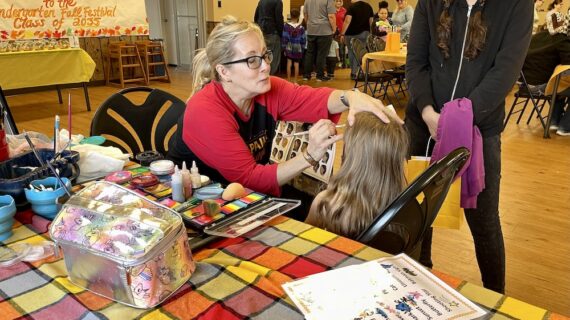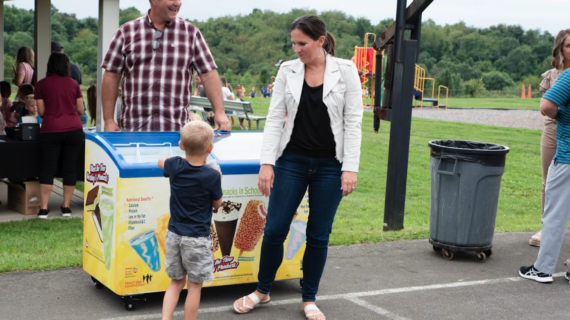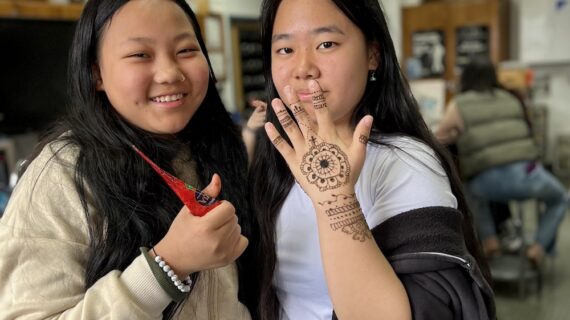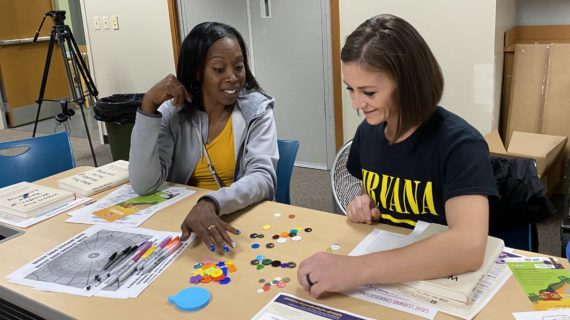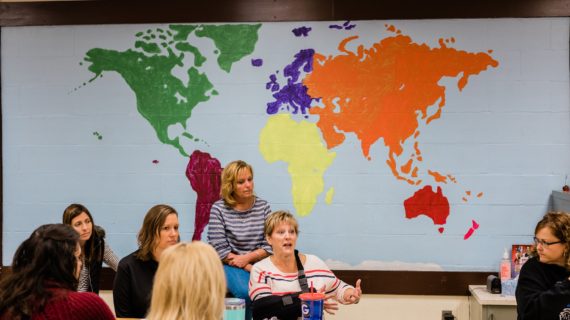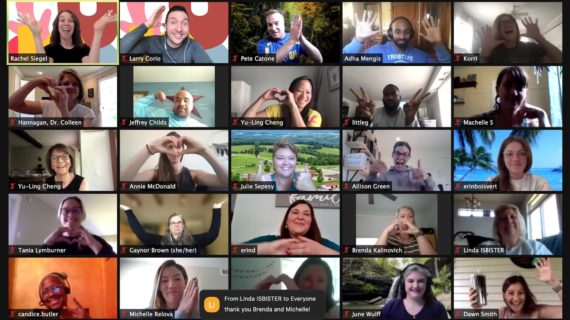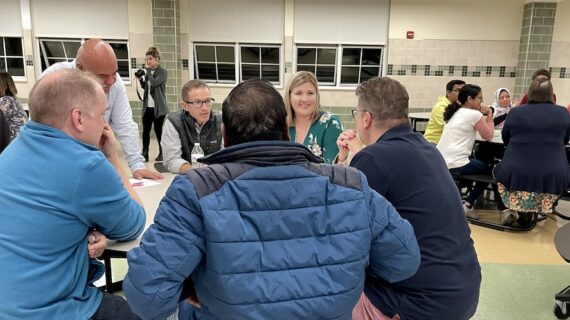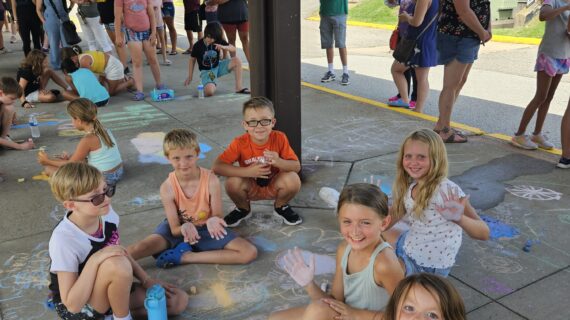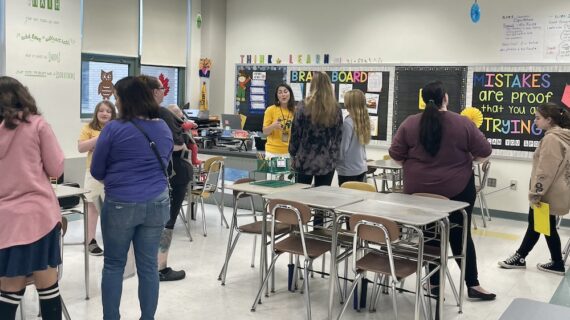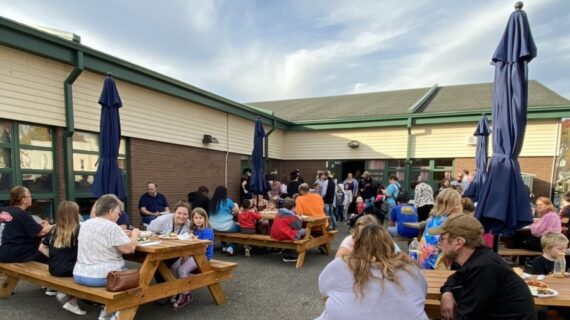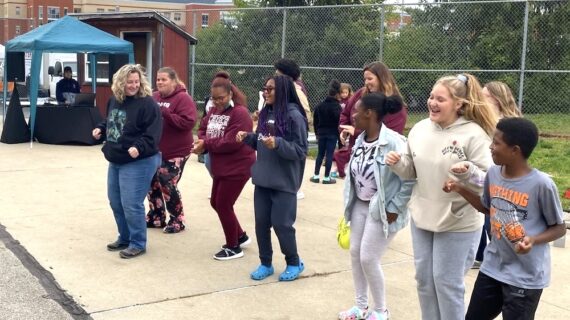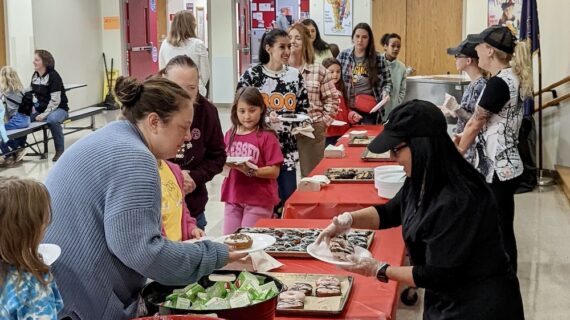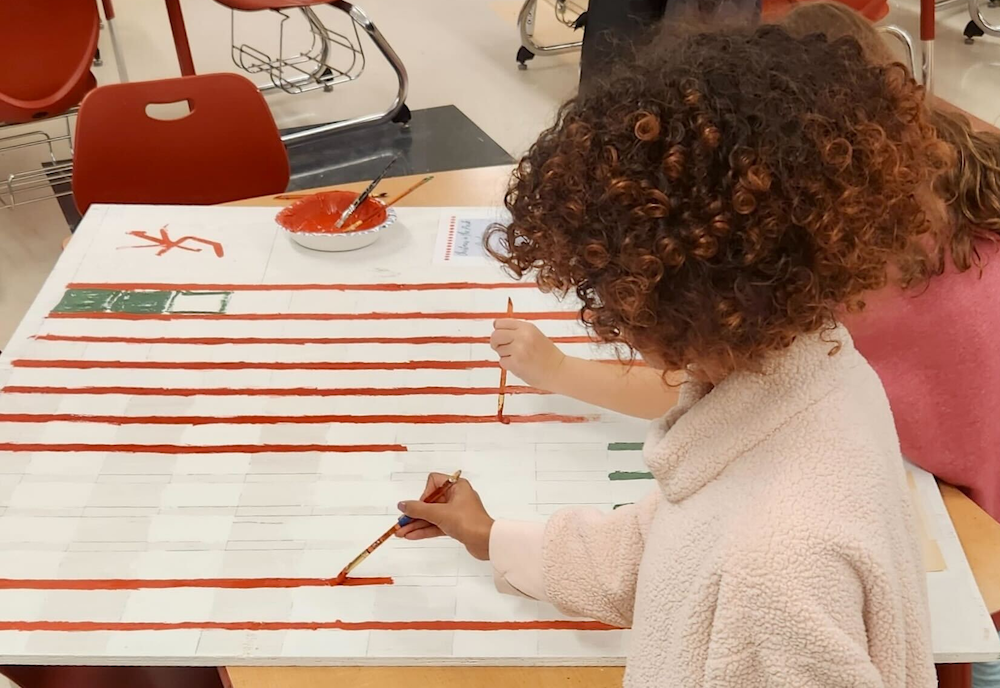
Parents as Allies: At Grove City, middle school parents are welcomed as partners in learning
Photos courtesy of Parents as Allies/Grove City.
Now that we routinely gather in crowds and the sight of someone in a mask takes us a bit by surprise, it’s almost hard to remember what life was like during the 2021-2022 school year. The full-on lockdown was over by then. But at many elementary and middle schools, a variety of precautions were still in place.
Most parents at Grove City Middle School had caught a glimpse of their children’s teachers and been invited in small groups to school events once or twice. But for the sake of safety, they’d been kept at arm’s length – only hearing second-hand about the academic lives of their sixth and seventh graders.
So in 2022, Grove City parent Marisa Jackson was more than eager to get involved when she was asked to join the school district’s Parents as Allies team.
The Pittsburgh-based Parents as Allies project was launched by Kidsburgh to explore the Brookings Institution’s research into engagement between families and schools (and the worrisome disconnects and misunderstandings they found, then use design thinking to hack the challenge of building solid family-school engagement in districts across western Pennsylvania.
At Grove City, the first priority was connecting with middle school families. So a team made up of school staff and local parents like Jackson set about doing this work together – and soon began building bridges that have made a difference for kids in their community.

WHAT DID THEY TRY?
Since parents hadn’t been hosted at the middle school since before the pandemic, the team dreamed up a vision: Let’s create a “ramped up” open house event that will feel like a joyous carnival.
Although it was important to welcome sixth-grade parents, who are newest to the middle school experience, Grove City Middle School Principal Larry Connelly was aware that many eighth-grade parents had never come into the building because of the pandemic.
“We wanted to prioritize saying: ‘All families, please come,’” Connelly says. “Please meet teachers.”
They made it a real party. A food truck served free dinners, a shaved ice station was a huge hit and a local movie theater provided popcorn. Tiny moments led to new friendships.
“I’m in line getting shaved ice and I could just talk to parents,” Jackson says. “Connections happened that wouldn’t have happened otherwise.”
Because the event was funded by a Parents as Allies grant, “I appreciated that we could provide so much and welcome them with free food,” Connelly says.

Along with the refreshments, teachers hosted activities that parents and kids could do together while visiting classrooms: The computer teacher had robots ready for programming and an art teacher invited visitors to explore an art installation.
The result? “Lots of smiling,” Connelly says, and a record turnout: More than 75% of the school’s families attended.
“It was the first time I had been past the front door of the school,” Jackson says. “It was nice to get the one-on-one interaction with teachers … and I met teachers that are not even my kids’ grade level.”
The night was deliberately casual, not at all like the sometimes awkward formality of parent-teacher conferences and traditional “back-to-school night’ events.
“It allowed parents and teachers to interact more organically,” she says. “People could ask questions without feeling pressured and have a brief interaction. Nobody felt obligated to interact, but they wanted to because it was so casual. They could spend all their time with one teacher if they wanted to.”

From those conversations, staff members got a better understanding and respect for the challenges faced by families. Parents, too, learned about the challenges that teachers face.
Since that first celebration in 2022, the team has continued prioritizing connections and planning events – including “Family Engagement Nights” and “Fun Nights” for fifth-graders getting ready to move up to middle school.
For parents like Jackson, the benefits are clear. Her older daughter now routinely talks about what she’s working on at school, knowing her mom is familiar with the teachers and the classrooms she’s describing.
In middle school, Connelly says, “a lot of things feel different than they do in elementary school, and they should. But at the same time, we need to appreciate the importance of keeping those connections and keeping parents involved.”
WHAT WOULD THEY TELL OTHER SCHOOLS?
- The parent connection in middle school matters. In elementary school, students thrive when parents are involved in all aspects of school. And it’s considered socially appropriate to give parents that space. By middle school, kids want more autonomy, and that’s great. But if you can keep parents engaged and make sure they have real relationships with teachers and school staff, kids benefit and are more likely to talk with parents about their academic lives.
- Communicate with middle school parents, so they know they’re welcome. As a parent, it’s hard to know how involved to get. So it’s important for teachers to let parents know that they’re open and willing to connect.
- Schools can’t do this alone. “Having a team that included staff members as well as parents is really important,” Connelly says.
